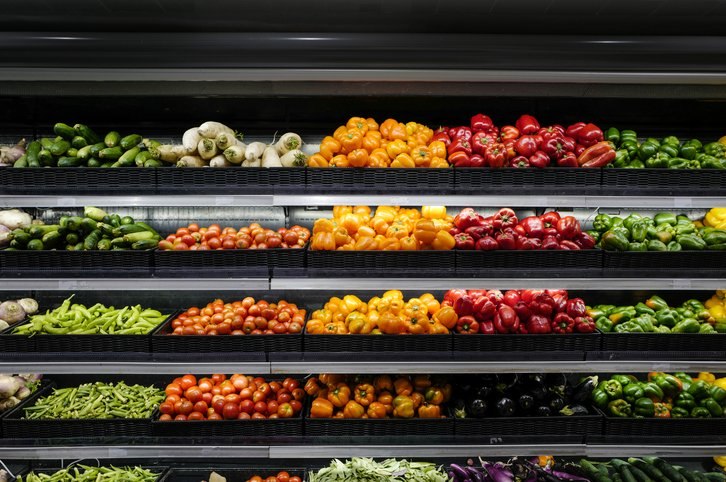
Global: Branded vs. supermarket own-brand – Where are consumers happiest to compromise?
The financial crisis is impacting consumers around the world with many cutting costs across the board. In a recent YouGov survey, we asked consumers across 18 markets if they prefer purchasing branded products or supermarkets’ own-label versions. Own-label products are carried almost exclusively by the supermarket that owns them and are generally cheaper than branded goods and, in this piece, we examine the data by product category.
Health and beauty
Overall, nearly three in five consumers (62%) prefer branded health and beauty products – making this the category where the public are most loyal to the brands they know. Branded products are more popular in developing markets with three-quarters of consumers in Indonesia (74%), Hong Kong (73%), India (73%) and Mexico (72%) preferring known brands. They are decidedly less popular in Britain (58%) and US (56%), but still the preference for more than half of consumers.
Tea and coffee
Tea and coffee is another area in which buyers are more unwilling to compromise with own-label brands. Data indicates that Australians are very particular about the brand of coffee and tea they drink. The country registers the highest proportion of consumers (71%) who go for branded brews. While most other markets register more than half of consumers picking branded coffee and tea, China and Singapore (48% each) are the only two markets to register less than 50%.
Alcohol
Globally, alcoholic drinks are third on the list of categories where consumers prefer to buy branded products (51%). North American markets are divided in their choice with Mexico registering the highest share of all 18 markets (67%). While the proportion in Canada (56%) slightly outpaces global respondents, the United States (46%) is among the least likely markets to pick branded wine and beer.
Soft drinks
North America and APAC are more likely than global respondents (47%) to pick branded fruit juices and soft drinks. Apart from Sweden (53%) and Poland (49%) who register more than the global audience, the rest of the European countries register some of the lowest figures of all the markets. Only around a third of British consumers (30%) say they would pick fruit juices and soft drinks from a brand, followed by 32% of Germans.
Condiments
Half of global consumers are inclined towards picking branded condiments (50%). The figure rises to over three in five consumers in Sweden (64%) and Mexico (63%), the highest in all 18 markets. While at least two in five consumers in most markets prefer branded condiments like ketchup and mayo, a few places are slightly less inclined – Singapore (39%), Italy (37%) and Germany (37%).
Cereals
Slightly less than 50% of global consumers say they prefer purchasing cereals from known brands (46%). However, consumers in North America and a few APAC markets are more likely to register a higher share with the same preference – Canada (57%), Mexico (66%), US (50%), Indonesia (63%), Hong Kong (63%), Australia (61%). Consumers in UAE also register around half of consumers who prefer branded condiments (53%). All European markets register less than half of consumers who are interested in branded cereals, with Germany recording 26%, the least of all 18 markets.
Fruits and vegetables
Over half of global consumers (53%) prefer buying non-branded fruits and vegetables, the highest of all categories. Britain registers around three-quarters of consumers (76%) who purchase supermarket own-brands of fruits and vegetables. The share in halved in Sweden with 35% of consumers picking ‘own-brand’ products.
Cupboard products and meat, poultry and fish
Own-brand products also score highly when it comes to cupboard products like canned food, rice and spreads (45%) and meat, poultry and fish (45%). Great Britain continues to have the highest share of consumers who prefer own-brand goods in both cupboard products (66%) and meat, poultry and fish (63%). While Germany (61%) and Spain (60%) are also significantly more likely than global respondents to pick own-brand cupboard products, the same is not true in these markets for meat, poultry and fish – Germany (48%) and Spain (39%).
Data suggests that Britons are more likely to shop for own-brand products in most categories than consumers in any other market, followed by Germans and Spaniards. This suggests that either the quality of these products is superior or that these consumers prioritise value.
Dairy products and eggs
British consumers (66%) outpace global respondents (44%) by 20 points when it comes to purchasing own-brand dairy products and eggs. Fewer but still over half of consumers in Germany and Spain (55% each) also say they prefer own-brand dairy products and eggs from supermarkets.
Frozen food
Consumers in most European countries prefer own-branded frozen food, registering more than global respondents (40%). The only exceptions are Poland (39%) and Sweden (29%). The other markets studied in this survey are not as inclined towards own-brand frozen food, with Hong Kong registering the lowest of all 18 markets – 21%.
Methodology: The data is based on surveys of adults aged 18 and over in 18 markets with sample sizes varying between 507 and 2004 for each market. All surveys were conducted online in June 2022. Data from each market uses a nationally representative sample apart from Mexico and India, which use urban representative samples, and Indonesia and Hong Kong, which use online representative samples.
Get quick survey results from nationally representative or targeted audiences using YouGov RealTime Omnibus
To receive monthly insights about the FMCG industry register here.
To read YouGov’s latest intelligence on the FMCG sector explore here.